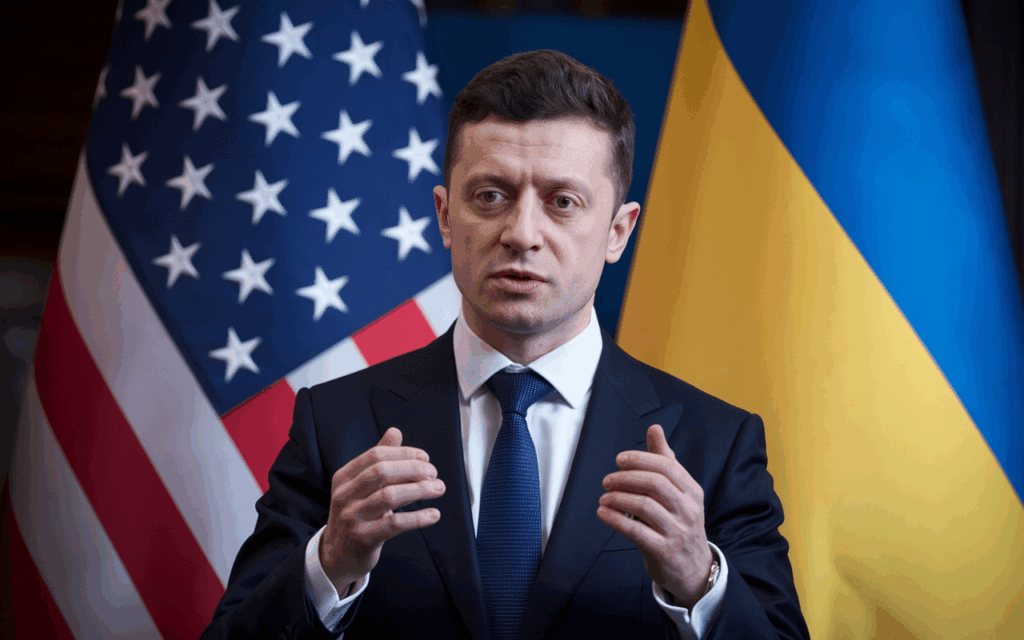Zelensky Urges Trump Not to Surrender to Russia: What It Means for the Future 🌍
In a pivotal moment that unfolded during Pope Francis's funeral in April 2025, Ukrainian President Volodymyr Zelensky urged former President Donald Trump not to surrender to Russia. This encounter has raised eyebrows and brought light to the complex dynamics of international diplomacy amidst ongoing conflict. The significance of their meeting cannot be understated as it represents a moment of reckoning for both leaders.
🚨 A Historical Meeting Amid Relative Silence
While the meeting may seem like an inconsequential footnote in the grand narrative of U.S.-Russia relations, it's anything but. It symbolizes Zelensky's enduring hope for American support in Ukraine's struggle for sovereignty. His public negations of Russian aggression contrast sharply with Trump's past flirtations with Putin, as he has been famously reluctant to take a strong stance against tyranny. 🤔
Zelensky described their meeting as "symbolic," hoping to foster what could be a historic dialogue. However, Trump's historical aversion to admitting fault raises concerns about his willingness to engage constructively. A careful observer might wonder if the outcome could shift U.S. policy if Trump were to regain influence. 🗣️
📉 The Stakes are High: Understanding the Implication of Surrender
The implications of Trump surrendering to Russian interests—or, perhaps more accurately, accommodating them—are dire. By suggesting that Ukraine should consider concessions, Trump risks undermining not just Ukrainian sovereignty but also the broader principles of democracy and justice that define global norms. Asking Ukraine to yield is akin to telling a neighbor to capitulate to an armed intruder to save their own skin. This analogy underlines the perilous situation: surrendering to a bully only emboldens them. 🔍
The Ukrainian resistance is not solely a fight for land; it's a struggle for survival against a much larger tyrannical machine. The fact remains: Ukraine is fighting for its existence, while Russia is on a conquest mission. And yet, some still find ways to frame the narrative as if Ukraine's persistence is merely a quixotic gamble rather than a necessary stand against aggrandizement.
🤝 Failure to Engage: The Limiting Mindset of American Politics
Another pressing concern is politicians on both sides who either support or remain silent as the Trump administration shifts more towards Russia. The narrative that insists Ukraine is the fault of its own making is not just ludicrous—it's historically inaccurate. By ignoring past aggressions and dismissing the Ukrainian claim to sovereignty, some within the U.S. political framework seem keen to paint a biased picture designed to fit a specific narrative. This has significant repercussions, both for Ukraine and the United States, as we lose sight of principles of justice in diplomacy.
🔄 What Could Be Done? Exploring Alternative Strategies
Instead of playing a game of poker, it would serve America—and the world—better to engage with clear-cut principles. Advocating for increased economic sanctions against Russia and bolstering military efforts in Ukraine would send a clear message that the U.S. stands firmly against tyranny. Leaders in D.C. would do well to recognize this aligns with American values of democracy.
In contrast, the "final offer" presented by Trump's aides gives away too much and undermines the integrity of international relations. Americans have democratic ideals that should guide foreign policy, supporting nations that strive for freedom against oppressive forces. ☀️
🌏 Final Thoughts: A Call to Action
As we reflect on the meeting between Trump and Zelensky, it’s essential that we remember the historical lessons learned: appeasement rarely ends well, and dialogue must be tempered with accountability. The world is watching, and the heavy burden of history cannot be overlooked. The potential for catastrophe looms larger than ever, and the path we take now could define global politics for generations.
We must rally together in support of resilience, urging leaders to do what is right—not just what is expedient. After all, nations that choose to fight for their freedom will be the ones to shape a brighter future. Let’s advocate for policies that lift up democracy and protect those who dare to resist tyranny! 💪

More Stories
Exciting News: The Summer I Turned Pretty is Becoming a Movie
Reflecting on Robert Redford’s Legacy of Integrity and Artistry
Sara Rivers Appeals Dismissal of $60 Million Lawsuit Against Sean Combs: A Fight for Justice in the Entertainment Industry